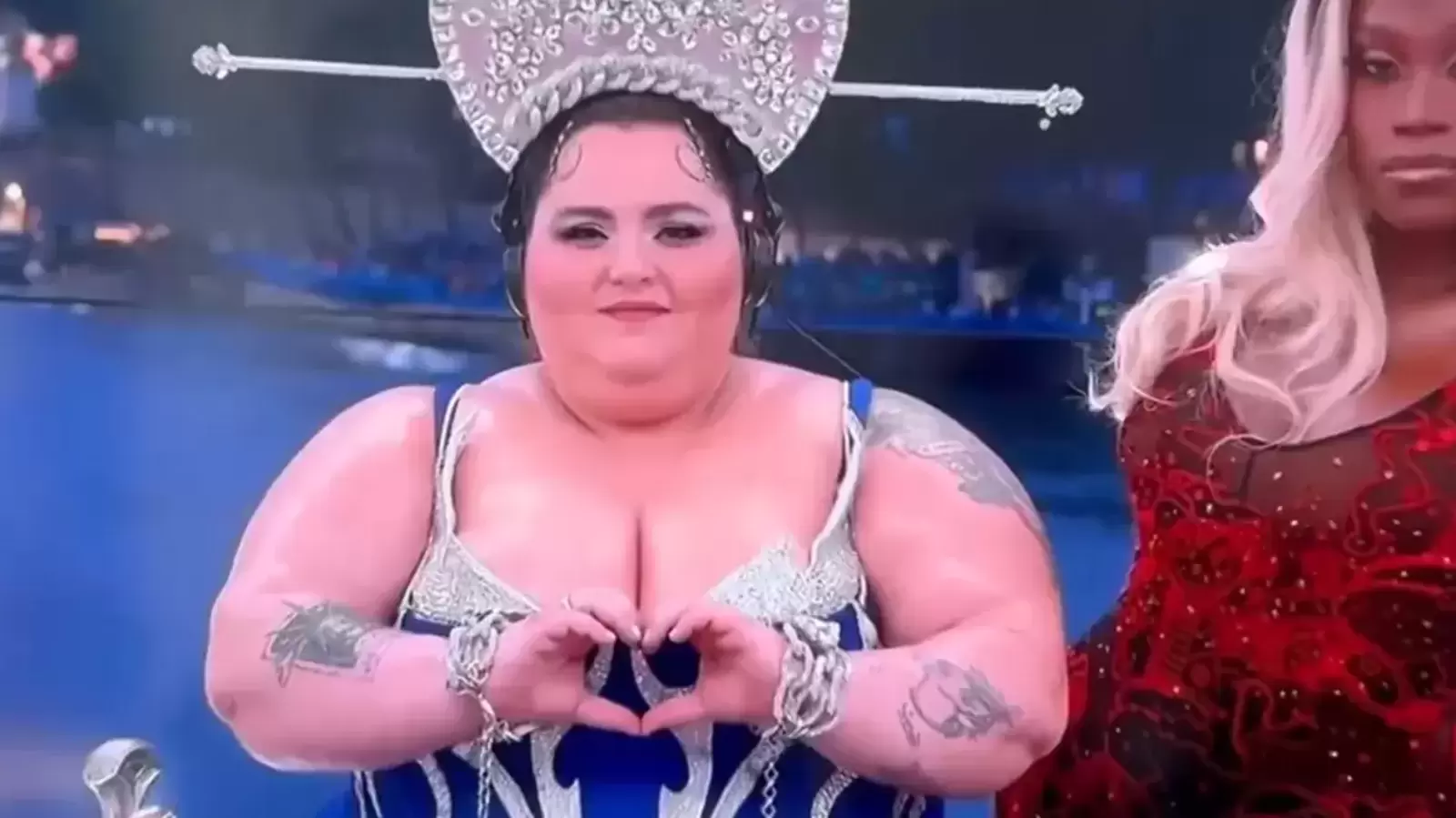## A Storm of Controversy: The Paris Olympics and the “Blasphemous” Drag Act 🎭
The anticipation for the Paris 2024 Olympics was palpable, a crescendo of excitement building with each passing day. Yet, amidst this fervent anticipation, a tempestuous controversy erupted, casting a long shadow over the grand spectacle. At the heart of this maelstrom: a drag performance, billed as a highlight of the opening ceremony, that ignited a firestorm of outrage.
The performance, featuring a drag queen, was deemed “hyper-sexualized and blasphemous” by many, drawing ire from both religious and secular sectors. The focal point of the outrage was the portrayal of a figure resembling Dionysus, the Greek god of revelry and wine, alongside a child. The choreography, with its suggestive movements, was deemed to be pushing the boundaries of taste and decorum, particularly with a child present.
The use of the child in the performance triggered a fierce debate about the appropriateness of such a scenario. Critics argued that the inclusion of a child in a performance with sexually suggestive undertones was inherently exploitative and inappropriate, particularly within the context of a global sporting event.
The drag queen’s performance was further criticized for its perceived “mockery” of transgender individuals. Critics argued that the portrayal was insensitive and disrespectful, perpetuating harmful stereotypes about the transgender community. The performance was seen by some as a trivialization of transgender identities, a mockery that resonated deeply with those who had personally experienced discrimination and prejudice.
The controversy surrounding the drag act at the Paris Olympics serves as a potent reminder of the evolving cultural landscape and the challenges that arise when traditions clash with contemporary interpretations. The performance ignited a debate about the boundaries of artistic expression, the role of children in performance, and the representation of transgender individuals in popular culture.
This controversy underscores the intricate relationship between artistic freedom and societal sensitivities, a delicate balance that is constantly shifting. The reaction to the performance was a reflection of the multifaceted anxieties and sensitivities of the modern world, where cultural norms are constantly being redefined and challenged.
While the controversy surrounding the drag act has subsided, the underlying issues remain. The Paris Olympics, intended to be a celebration of athleticism and human achievement, became a battleground for competing values and ideologies. This incident highlights the importance of carefully considering the cultural and societal implications of artistic expression, especially when it involves sensitive topics and vulnerable individuals.
As the world eagerly awaits the Paris 2024 Olympics, this controversy serves as a cautionary tale, urging us to approach such events with an awareness of the complexities and sensitivities that permeate our globalized world.
Delving Deeper: The Last Supper Controversy
The controversy surrounding the drag act extended beyond the performance itself, delving into a debate about the portrayal of the Last Supper. Critics argued that the performance blasphemously distorted a sacred Christian icon, the Last Supper, with the drag queen’s attire and performance mimicking aspects of the iconic artwork.
This criticism underscores the depth of the offense caused by the performance, with many viewing the “mockery” of the Last Supper as a desecration of a revered religious symbol. The act was seen as a direct affront to the religious beliefs of many, a deliberate act of provocation that challenged the sanctity of their faith.
This incident serves as a reminder of the sensitive nature of religion and religious symbols. While artistic expression is a fundamental right, it is essential to recognize the potential for offense when engaging with sacred symbols and beliefs.
Beyond the Headlines: Understanding the Nuances
The controversy surrounding the drag performance at the Paris Olympics sparked intense debate and raised crucial questions about the limits of artistic expression, the appropriate role of children in performance, and the representation of transgender individuals in the public sphere.
The performance, viewed by some as a bold act of artistic freedom, was seen by others as a transgression of established societal norms and religious beliefs. The controversy highlights the diverse perspectives and sensitivities that shape our understanding of culture, art, and identity.
The Power of Dialogue: A Call for Understanding
The controversy surrounding the Paris Olympics drag act serves as a stark reminder of the importance of respectful dialogue and understanding in a world increasingly defined by cultural diversity. The incident highlights the need for open and honest conversations about the complexities of art, religion, and identity in a globalized world.
Instead of resorting to outrage and condemnation, it is imperative to engage in dialogue that seeks to bridge divides and foster mutual respect. The Paris Olympics should be a celebration of human achievement, a platform for unity and shared values, not a battleground for conflicting ideologies.
Moving Forward: Lessons Learned
The Paris Olympics drag act controversy presents a valuable opportunity for reflection and growth. It compels us to engage in thoughtful conversations about the evolving nature of cultural norms, the appropriate role of art in society, and the importance of respecting diverse perspectives.
By fostering dialogue and understanding, we can move beyond the limitations of divisive rhetoric and embrace a future where artistic expression is celebrated while remaining sensitive to the diverse beliefs and sensibilities of our global community.
